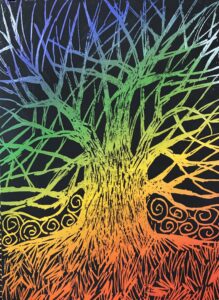
Start off on the right foot today by remembering what you pledged to yourself yesterday. Remember to keep pledging something new today as well. Lead yourself forward in new ways today, just as you may have tried to do yesterday. It’s okay if you started out strong and then forgot what you were intending. That’s okay; it’s normal. Keep in mind though, that the more you focus on change, and the more decisions you make based on the changes you wish for, the better you will get at sticking with your plan for change. Adopt an attitude of gratitude for all the little steps you are making, and without getting down on yourself, begin again today. See how much further you get today, as you remember what you are doing, one pledge at a time.
Sending you love,
The Soul Sisters, Jan & Jeanne



